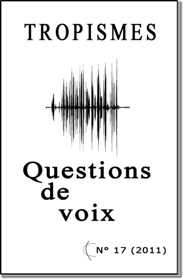Du silence du polyglotte au bégaiement de la langue
Keywords:
Diaspora, Voice, Body, IdentityAbstract
While postcolonial literature has often stressed the way the voice of the colonized is made to utter the sounds of a foreign language imposed upon the colonized population by the colonizer, diasporic literature features a larger spectrum of situations in which the voice is no longer in exile in a foreign tongue whose accents it is made to utter. The foreign language, the adopted tongue can also provide the diasporic subject with room for reinvention and make the diasporic journey an empowering experience. In this paper I propose to analyse the different representations of the voice through a focus on several contemporary writers, Monica Ali, Fred d’Aguiar, Gish Jen, Jhumpa Lahiri and Salman Rushdie. These representations range from a fantasy of the neutrality of the voice against the overcoded racialized body to the vocal exhilaration of the diasporic subject, which raises the issue of the tension between language and meaning when diasporic subjects express themselves in a second language whose affective and ethical basis is not as developed as that of the first language.Published
2011-06-05
Issue
Section
Articles
License
- Work submitted for publication must be original, previously unpublished, and not under consideration for publication elsewhere. If previously published figures, tables, or parts of text are to be included, the copyright-holder's permission must have been obtained prior to submission.

